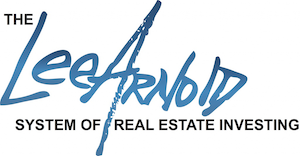
Real estate can be one of the slowest disciplines in the world.
It doesn’t have to be, but for a variety of reasons, it can drag along. For instance, commercial real estate and urban planning tend to be leisurely practices, responsive to the world around it. This is because the sector is retrospective to change—in other words, a city will base its plans for the future on developments in the past.
Let’s say a city notices a trending spike in parking tickets due to inadequate parking which started three years ago. Based on the data collected, the urban planners determine that more parking is needed and set forth to erect a parking garage. From planning to completion, the project will take seven years. Not bad in the grand scheme of things, and certainly there will be a need for parking down the road, anyway. They all shake hands on a problem solved, or so they believe.
Meanwhile, ride-share companies like Uber and Lyft have increased in popularity, bike rental stations are on the rise, highways into the city have improved to facilitate and encourage carpooling, and every car manufacturer in the world is developing self-driving cars. But, because urban planners looked back three years to decide what would work in seven, a decade and millions were wasted.
While the urban planning committee was busy looking at the past for a solution for the future, the world sped by with other plans and the “much-needed” parking garage remains nearly empty while the people of the city long for a Whole Foods and a grassy knoll on which to spend their lunch break.
Why are we talking about the slow side of real estate when clearly that’s not the goal here? The urban planning example is a formula that doesn’t work for today’s rapidly changing society but is something I consistently see in people who run a slow business.
So, how can you avoid spending ten years building an “empty parking garage?”
- Stop conforming to the belief that it takes a massive amount of time to solve a problem and start performing in a way that produces results right now.
- Don’t handcuff your plans to a linear structure. Don’t look back at what would’ve made sense in your life years ago. You don’t life there anymore. Live at your toes, not at your heels. Look forward and anticipate future needs, and if you need to change your angle along the way, realize that you have the option to do just that.
- Learn from people who know the future. No, I don’t read palms in between funding tours. But the future is tangible and can be predicted. Wouldn’t you rather have someone on your side who responsively reacts to trends and strategizes accordingly?
- Act now. Don’t build “someday.” Don’t do it “tomorrow.” Don’t plan until your planner is sore. Tackle your work now, and you’ll be done faster.
You could look ten years ahead to a success and trudge along until then. And ten years down the road, it could all still be worth it. But if you can do in a matter of months what it takes others ten years execute, why wouldn’t you?
For those of you who consistently make excuses for your shortage of education based on your lack of money, time, and other resources, ask yourself this: What are the next ten years of your life worth?
To Your Success;
Lee A. Arnold
CEO
The Lee Arnold System of Real Estate Investing
To read more articles click here.

